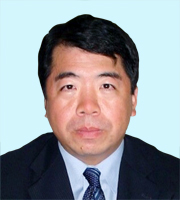‘Tradition and Moving Toward the Next Stage’

Tradition and Moving Toward the Next Stage’
In the midst of the sixth wave of COVID-19, I would express my sincere respect to all the doctors for their continued efforts in patient care and infection control.
As I have already announced in the website, Japanese Society of Kawasaki Disease transferred from a voluntary organization to a general incorporated association with the corporate status on December 1, 2021. I was appointed as the President of the voluntary organization on April 1, 2021, and I have been appointed as the President after the incorporation. I am so humbled by the thought that we, as an academic society with > 40 yours of tradition, are facing a new era. Amid drastic changes in the social environments, it is presumed that it is hard to predict what is going on in the next few years. As an academic society, we need to envision the future, identify potential issues, and start working on them from now. In order to realize such a scheme, it is important to comprehend the tradition and position of our academic society where we stand and to respond flexibly to the ever-changing environments accordingly.
Fifty-five years have passed since the late Dr. Tomisaku Kawasaki (passed away in June 2020) first reported Kawasaki disease in 1967. The first meeting of the predecessor, Japanese Study Group of Kawasaki Disease, was held in 1981, and the first meeting of the International Kawasaki Disease Symposium, a meeting of Kawasaki disease researchers from around the world, was held in 1983. In 2021, the 41st meeting of the Society (hybrid) and the 13th meeting of the International Kawasaki Disease Symposium (virtual), which is held every 2-3 years, were held. I believe that there are doctors who were directly influenced by Dr. Kawasaki and mentors in Dr Kawasaki’s generation as well as many young doctors who entered this field under the inspiration of such mentors.
This society is a multidisciplinary society for a single disease. The number of cases, the acute care based on the high recognition of the disease, the experience of long-term follow-up through adulthood, and research results based on these experiences make this society unique internationally. The 13th International Kawasaki Disease Symposium was held in 2021 and focused on the following topics: infectious immunology, genetics, vascular biology, pathology and epidemiology related to etiology and pathogenesis; clinical, socioeconomic and biopsychosocial issues related to diagnosis and treatment; and the medical transition in the life stage-based tailored medicine (lifelong medicine) for coronary sequelae. A total of 316 researchers from 25 countries gathered in a fully online format. In particular, COVID-19-associated multisystem inflammatory syndrome in children (MIS-C), a disease mimicking Kawasaki disease, was a new hot topic; many young researchers actively participated in the conference; the international connection of family associations was confirmed; and a satellite meeting of Asian Kawasaki disease researchers was also held, which heralded new directions. I believe that many young researchers were inspired and highly motivated by the multidisciplinary and international research environments in the conference.
The year 2022 will be a year of change for our society in four ways: firstly, the maturation of the society’s organization and expectation for its social role through becoming a general incorporated association; secondly, the rapid digital transformation (DX) of the society’s activities and research communication in Japan and overseas; and thirdly, the advent of the terrifying MIS-C, which alternatively provides insights into the etiology of Kawasaki disease; fourthly, the release of the basic plans based on the Stroke and Cardiovascular Disease Control Act and the Basic Law for Child and Maternal Health and Child Development, which will strengthen the association of societies and academic societies.
Therefore, we believe that the following activities are important, along with the establishment of a corporate structure based on the tradition of the society: 1. promotion of society-supported research (including multidisciplinary joint research), 2. promotion of collaboration among domestic academic societies and collaboration with local Kawasaki disease-related research groups, 3. Promotion of international and Asian collaboration among Kawasaki disease research groups, 4. Fostering young researchers and providing opportunities for lifelong learning (holding online seminars sponsored by academic societies, etc.), 5. Promoting public relations and information exchange through websites, interactive media (SNS, etc.), and social contributions including cooperation with family associations.
For these activities, we need the opinions and support of our members, many other clinicians and researchers and we would appreciate your kind cooperation in advance.
March 2022
Yoshihide Mitani
President, Japanese Society of Kawasaki Disease
(Professor, Perinatal and Maternal Child Center, Mie University Hospital)

